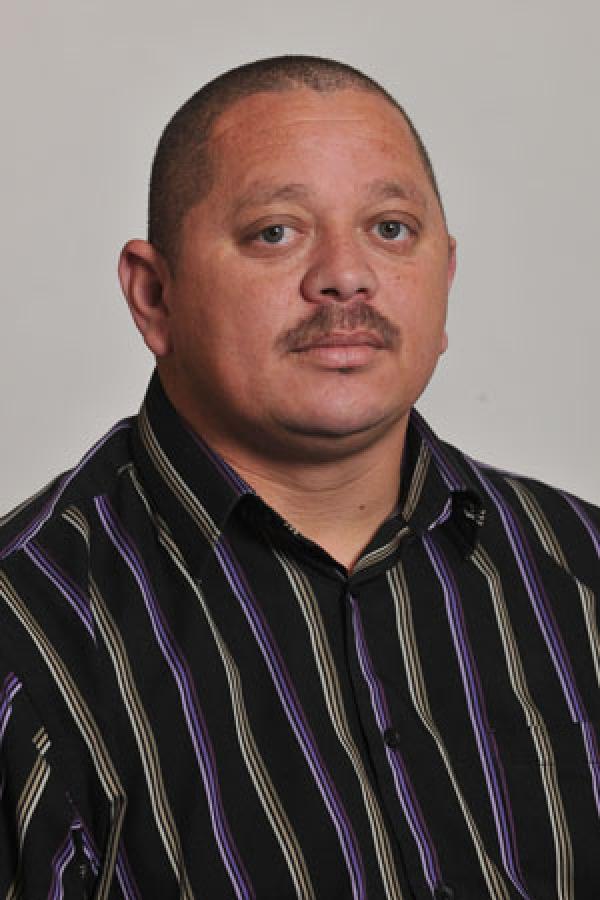Ernest Sonnenberg, Mayco member for Utility Services, responds to SJC

It is deeply ironic that the Social Justice Coalition (SJC), which has appointed itself the guardian of the dignity of the most vulnerable in our city, would rather grandstand, utilise social media platforms, and have lengthy report back sessions rather than work with the City to directly improve the lives of residents.
After their briefing today, there are seven simple questions that the SJC must answer. These are:
Why does the SJC not report faults when they occur, but rather wait to compile ‘dossiers’ with out-of-date data for maximum self-serving publicity? It is pointless to collate out-of-date information. If they were actually interested in assisting residents, they would report faults for remedial action.
What does the SJC do to help ensure that communities take responsibility for keeping toilets in a clean and useable state and to assist in the problem of illegal dumping?
Why did the SJC walk away from mediated discussions on the Janitorial Programme?
The SJC recognised today that the Janitorial Programme works well in a number of areas. Why then did they describe the whole programme as failure?
How much did the SJC spend on their ‘social audit’? What were the salaries paid for this exercise and what is the percentage of funds obtained for this initiative relative to their overall budget?
Does the SJC recognise that the City has invested heavily in expanding access to decent sanitation, which sees Cape Town having 100% access, while most other cities have thousands of residents with no access to any sanitation at all?
The SJC referenced their 2013 solid waste audit, but the City has yet to see these findings. Why have they not shared these?
The City of Cape Town has, over the last few years, done all it can to provide comprehensive information to the SJC on the Janitorial Programme. The City has even gone so far as to participate in a mediation process with the SJC on the Janitorial Programme, in the hope that it would help create a beneficial working relationship. Unfortunately, at virtually every stage of this process, the SJC has not cooperated and has ignored substantive concerns – not only expressed by the City but by other organisations as well.
The key concerns the City has are as follows:
- The SJC has yet to acknowledge or apologise for the inaccurate information that they circulated during their last social audit concerning area cleaning and refuse removal.
- The SJC has yet to acknowledge that they fail to understand complex government processes, particularly relating to legislative, financial and human resource constraints.
- During and after the ‘social audits’ into the Janitorial Programme in July 2014, the City asked for the raw data collected to be provided. This reasonable request, which would help the City fully understand any shortcomings identified, has been ignored by SJC. Concluding this report without input from the City means that the results are out of context and most probably inaccurate.
- The City has repeatedly asked the SJC to log faulty toilets immediately through the City’s reporting system. Instead, the SJC seems to prefer to leave it to months after the time, which is not beneficial to residents. If there is a fault, it should be reported immediately so that the City can address the matter (as it does in all areas of Cape Town).
- Additionally the SJC will no doubt intentionally ignore the overwhelming majority of toilets that they ‘audited’ which were in full working order.
Whilst Johannesburg and other cities are facing chronic and debilitating water shortages as well as major sanitation backlogs, the SJC is openly hostile to the City of Cape Town. The City of Cape Town is the only metro where residents have universal access to safe and reliable drinking water and where there is adequate sanitation in informal settlements.
The City voluntarily introduced the Janitorial Programme in the interests of improving service delivery to informal settlements and creating much needed job opportunities. The implementation of a programme of this kind is complex and will always have teething issues which have been acknowledged and remedied. The programme is currently running in over 160 communities, with approximately 900 janitors employed at any given time.
The City is currently conducting its own assessment of efficacy of the programme with a view to determining the future of nature of its roll-out. Given the SJC’s past disingenuous conduct and fundamental lack of understanding of the programme, they will not be included in this process.
This is the full response by Councillor Ernest Sonnenberg. It was not edited by GroundUp
Support independent journalism
Donate using Payfast

Don't miss out on the latest news
We respect your privacy, and promise we won't spam you.

This article is licensed under a Creative Commons Attribution-NoDerivatives 4.0 International License.
